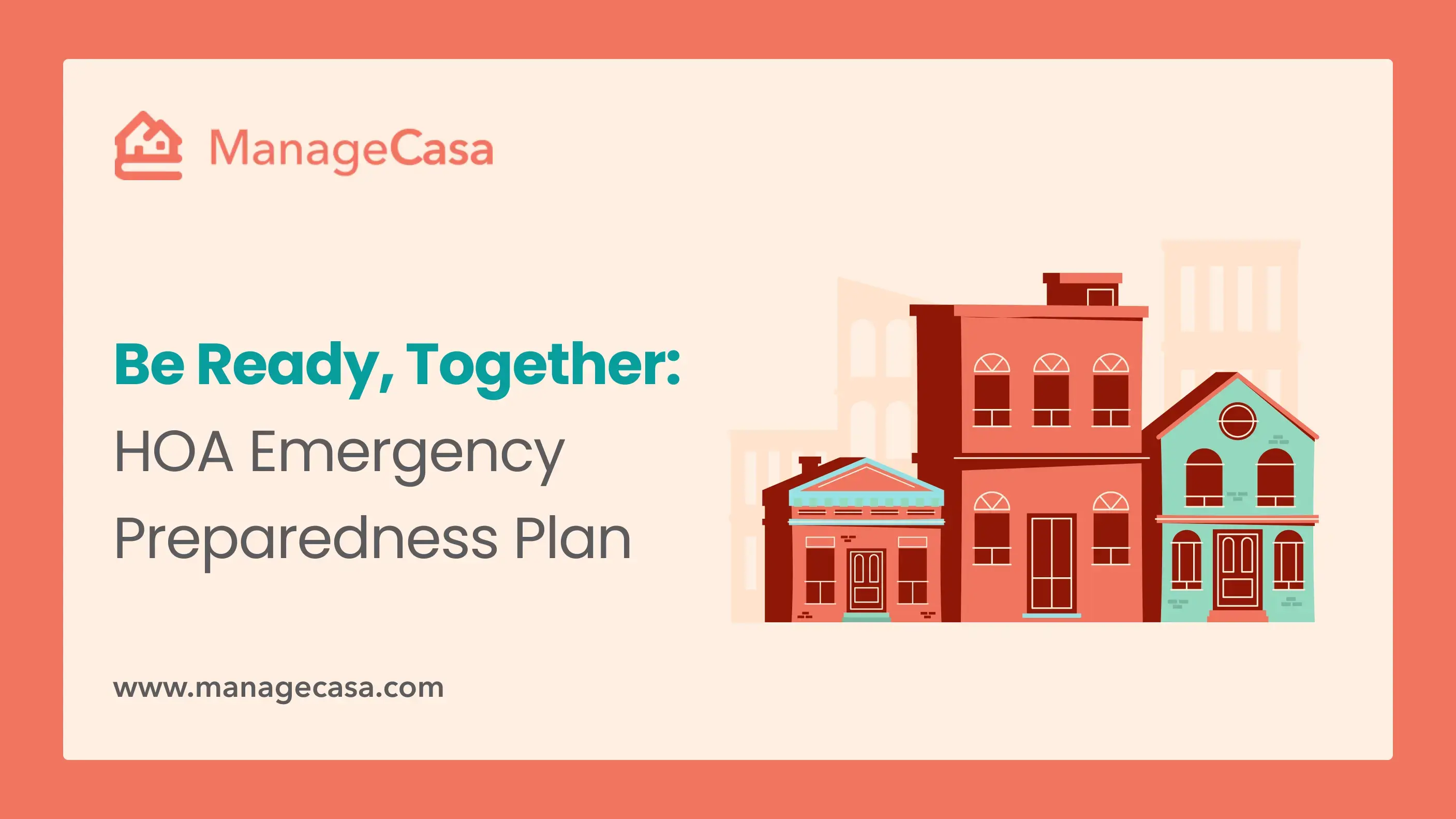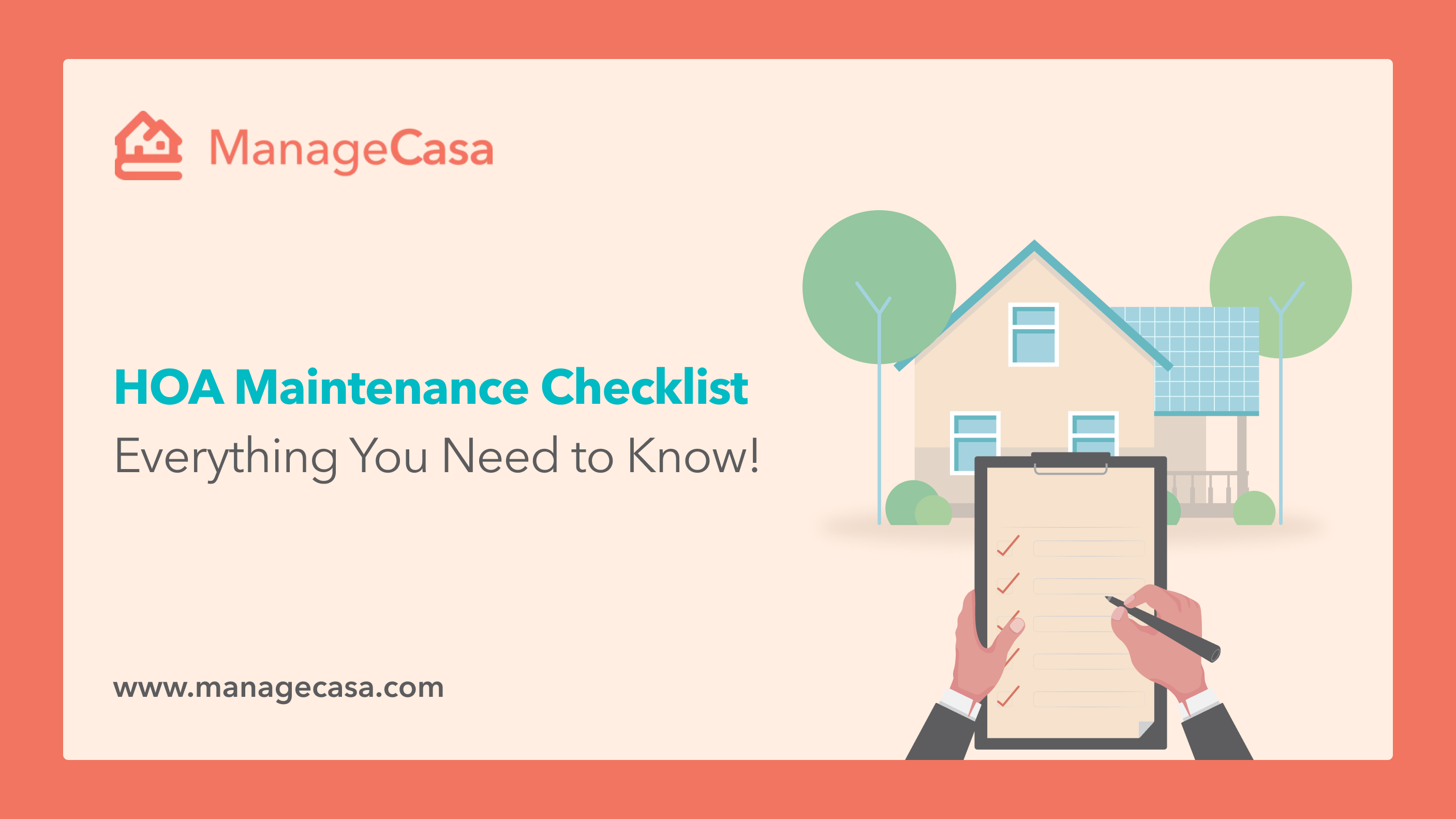A homeowners association (HOA) is vital for maintaining harmony and fostering a strong community within any neighborhood. A well-structured HOA board of directors ensures homeowners, landlords, and tenants enjoy a well-managed environment that protects property values and enhances quality of life.
A responsible and effective HOA board dedicated to serving the community is at the core of this mission. If you aspire to join your HOA leadership team, this guide will help you understand the HOA Board of Directors responsibilities and equip you with the insights needed to make a positive impact.
So grab your favorite drink and read on to discover the roles, duties, and responsibilities of HOA board members.
Understanding the HOA Board of Directors
The HOA Board of Directors is a group of elected homeowners responsible for managing and overseeing the association’s daily operations. Their duties revolve around enforcing governing documents bylaws, covenants, conditions, and restrictions to maintain property values and community standards.
Essentially, the HOA board of directors functions like an organization’s leadership team, making decisions that influence the peace, safety, and financial health of the neighborhood. Selecting committed, capable board members is crucial for a thriving community.
HOA Board Structure and Member Roles

To manage efficiently, each position on the HOA board of directors carries specific duties. This structure distributes the workload evenly so that no member shoulders the full responsibility alone.
President: Leads meetings, sets agendas, and serves as the public representative of the HOA.
Vice President: Assists the president and steps in during absences. Often leads projects or committees.
Secretary: Maintains accurate meeting records, oversees correspondence, and stores key association documents.
Treasurer: Handles all financial management, including budgets, dues, and expense tracking.
The size and composition of the board vary by community, but these core positions define the foundation of effective HOA leadership.
Why HOA Board of Directors Responsibilities Matter
Being part of an HOA board is more than holding a title, it’s about commitment to community well-being. Each director contributes to:
-
Rule Enforcement: Ensuring compliance with HOA regulations for fairness and consistency.
-
Financial Management: Overseeing dues collection, budgets, and community expenses responsibly.
-
Maintenance & Upkeep: Keeping shared spaces safe, attractive, and properly maintained.
-
Conflict Resolution: Addressing disputes fairly and maintaining harmony among residents.
-
Community Building: Organizing events and encouraging homeowner participation to foster unity.
Together, these HOA board of directors duties ensure the neighborhood remains a desirable place to live.
Code Of Ethics for HOA Board Members

Behind every successful board is a strong ethical foundation. The HOA board of directors must follow a clear code of ethics that supports transparency, fairness, and accountability:
-
Integrity: Act honestly and in the best interest of the community.
-
Transparency: Make open, well-communicated decisions.
-
Confidentiality: Protect private or sensitive information shared in meetings.
-
Fairness: Treat all homeowners equally without bias.
-
Respect: Foster positive and professional interactions among members and residents.
-
Accountability: Take responsibility for all actions and outcomes.
-
Compliance: Follow all governing documents and legal regulations.
-
Professionalism: Uphold the reputation of the association through courteous conduct.
- Service: Prioritize the community’s collective interests above personal gain and dedicate efforts toward improving homeowner satisfaction.
These ethical principles guide every decision and reinforce homeowner trust.
Defined Goals for HOA Board Members
Being diligent and following the ethical code aren’t the only aspects that define the role of board members. Their responsibilities extend beyond these principles, as the entire HOA board works towards achieving specific goals. These goals include:
- Community Engagement: Increase homeowner participation in meetings and events to foster a stronger sense of community.
- Financial Stability: Achieve and maintain a balanced budget while building reserves for future community needs and emergencies.
- Property Value Enhancement: Implement projects and initiatives that enhance the aesthetic and functional value of the community.
- Sustainable Practices: Integrate sustainable and eco-friendly practices within the community’s operations and maintenance.
- Effective Communication: To build trust and transparency, ensure timely, consistent communication with homeowners.
- Safety & Security: Improve the safety and security measures within the community to protect residents and property.
- Infrastructure Improvement: Plan and execute infrastructure projects that improve the community’s amenities and overall living experience.
- Resident Satisfaction: Strive for high resident satisfaction levels by addressing concerns promptly and effectively.
We hope this clarifies the importance of setting and adhering to a set of rules for your HOA Board. In the next section, we’ll explore the duties each member is expected to perform in unison.
10 Important Duties of HOA Board of Directors

If you’ve decided to take part in your community’s HOA leadership, understanding the HOA Board of Directors responsibilities is essential. These ten core duties define how board members maintain harmony, efficiency, and long-term success within the association:
1. Governance: Establish and enforce community rules, policies, and procedures that align with the HOA’s governing documents to ensure fair and consistent management.
2. Financial Management: Oversee budgets, monitor expenses, and maintain transparent financial records to keep the HOA financially stable.
3. Maintenance: Ensure that all common areas and shared community properties are properly maintained, repaired, and safe for residents.
4. Communication: Use newsletters, emails, meetings, and online portals to update homeowners on key decisions, events, and community news.
5. Conflict Resolution: Address homeowner disputes calmly and objectively to promote fairness and preserve community harmony.
6. Meetings: Attend and actively participate in HOA meetings, contributing informed decisions that reflect the best interests of residents.
7. Legal Compliance: Ensure adherence to all federal, state, and local regulations, as well as compliance with the association’s bylaws and covenants.
8. Vendor Management: Select, negotiate, and supervise vendors or contractors to guarantee high-quality and cost-effective community services.
9. Strategic Planning: Develop and implement long-term plans that support growth, sustainability, and community improvement.
10. Emergency Preparedness: Create and maintain an emergency response plan to protect residents and property during unforeseen events or natural disasters.
These responsibilities form the foundation of effective HOA governance and define how a well-run board of directors upholds the community’s integrity and quality of life.
Simplify HOA Board Responsibilities with ManageCasa

Managing an HOA can feel overwhelming, but modern software solutions can make every process more efficient. ManageCasa’s HOA management platform helps board members automate accounting, maintenance, communication, and more.
With nearly a decade of experience supporting HOAs and COAs, ManageCasa empowers communities to share the workload while improving transparency and collaboration.
You can easily manage tasks like:
Simplify your HOA board of directors responsibilities and focus on what truly matters—building a connected, thriving community.
Schedule a demo today and experience the difference!
FAQs (Frequently Asked Questions)


